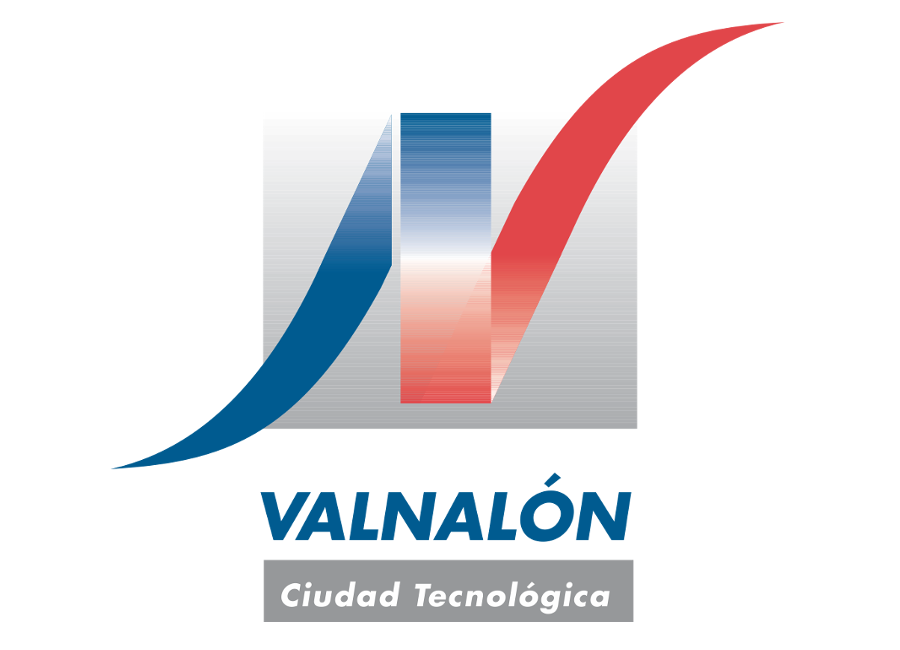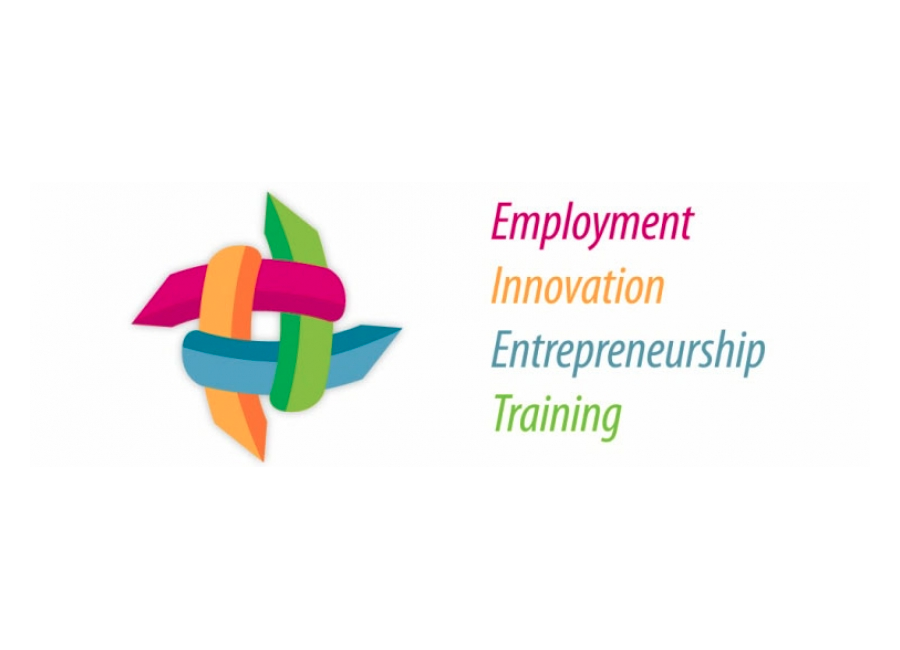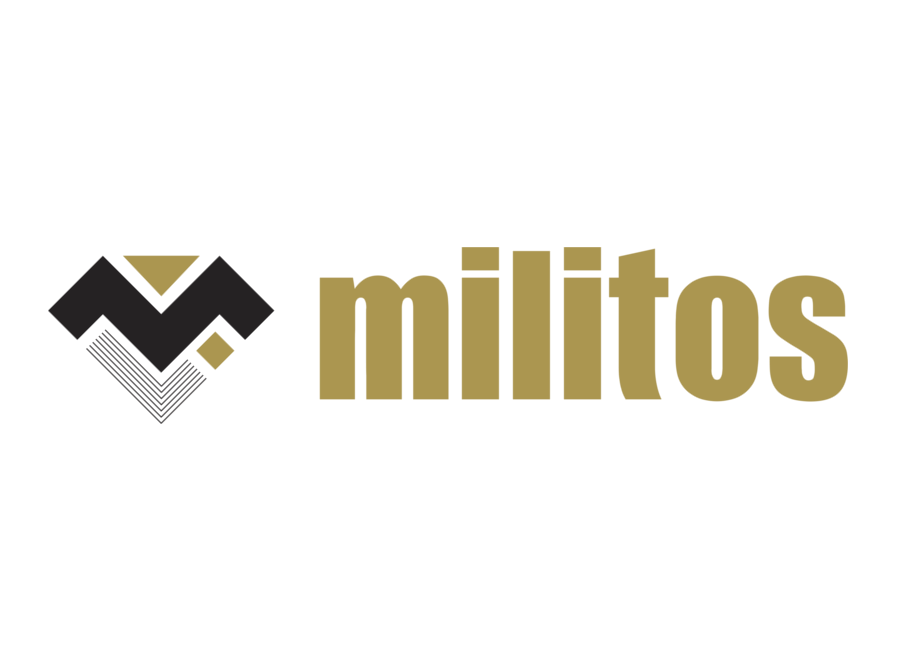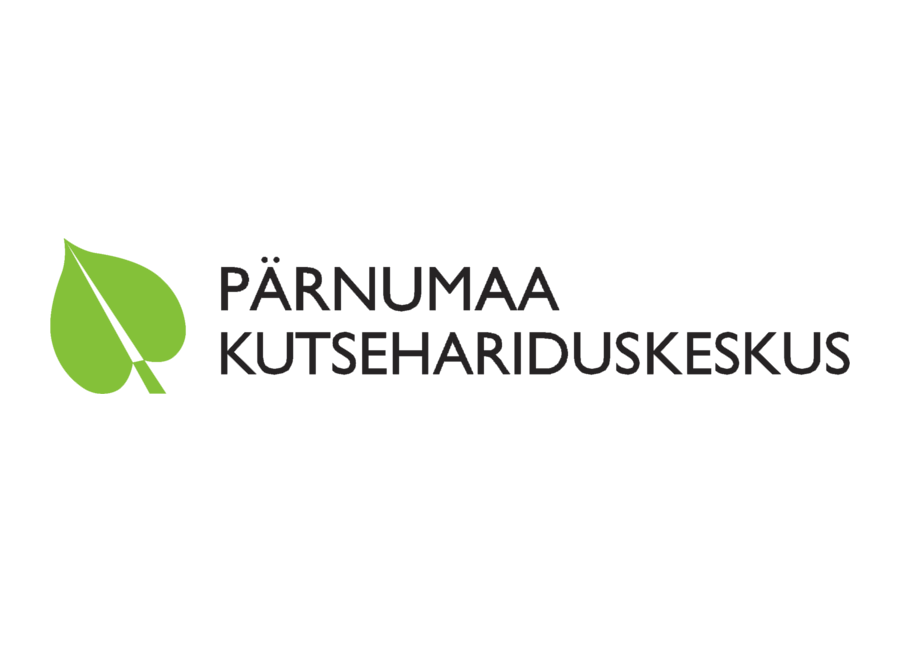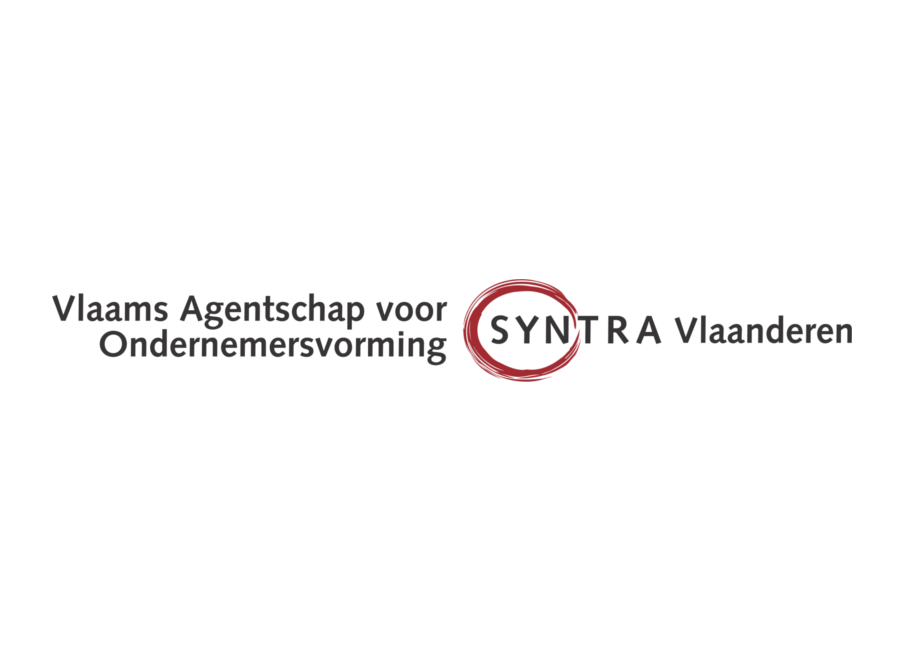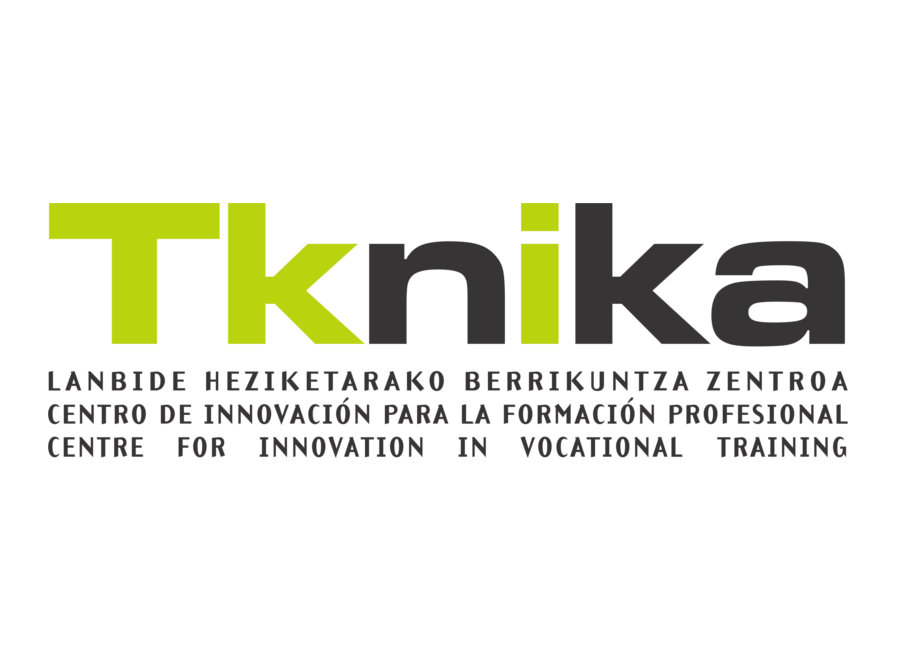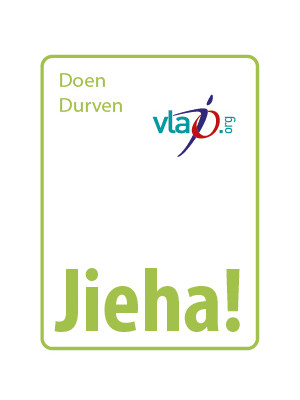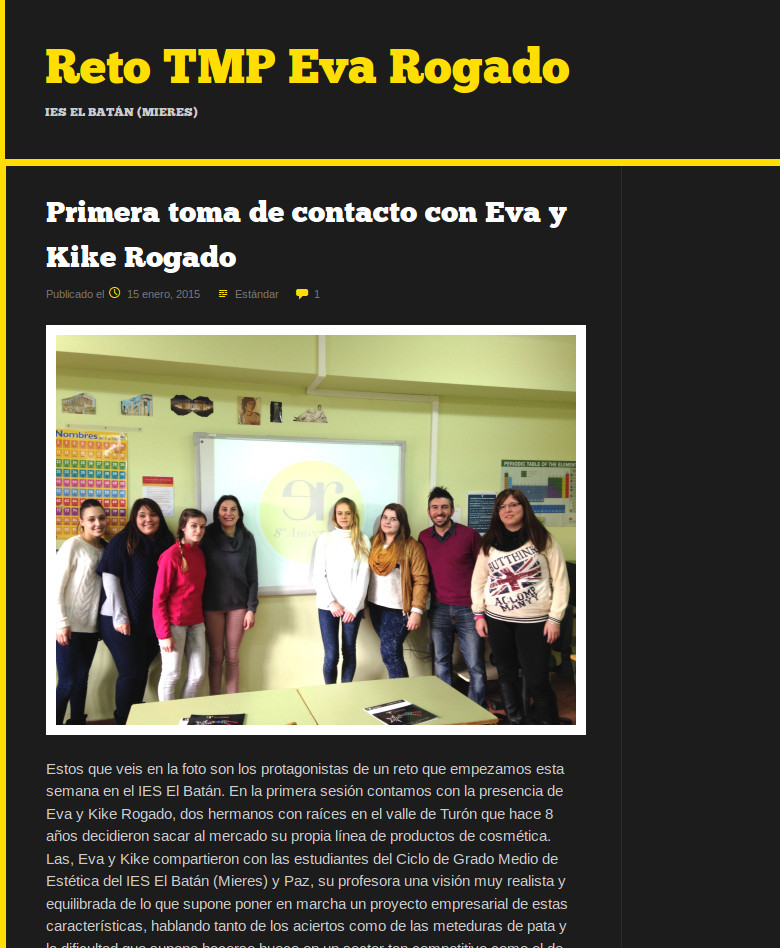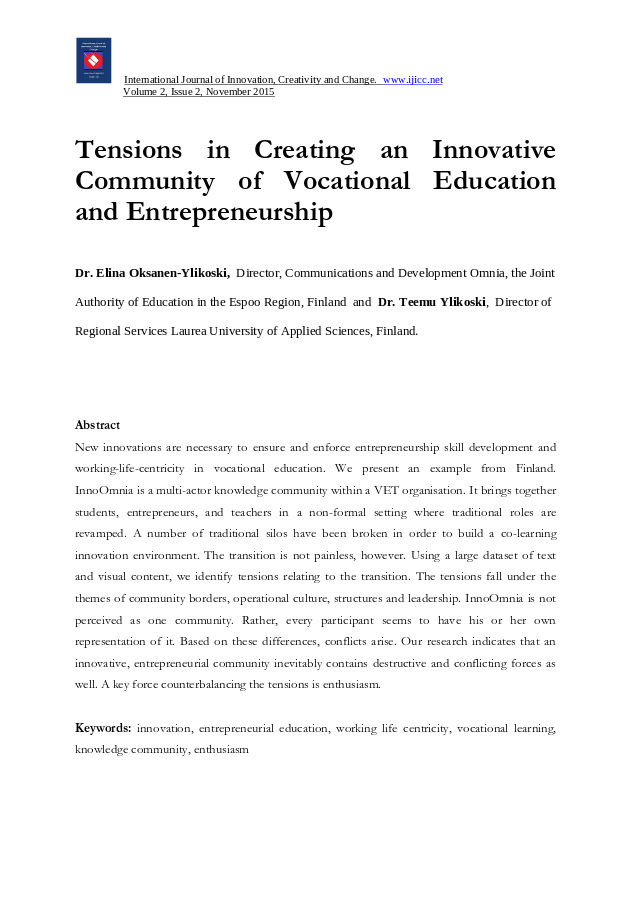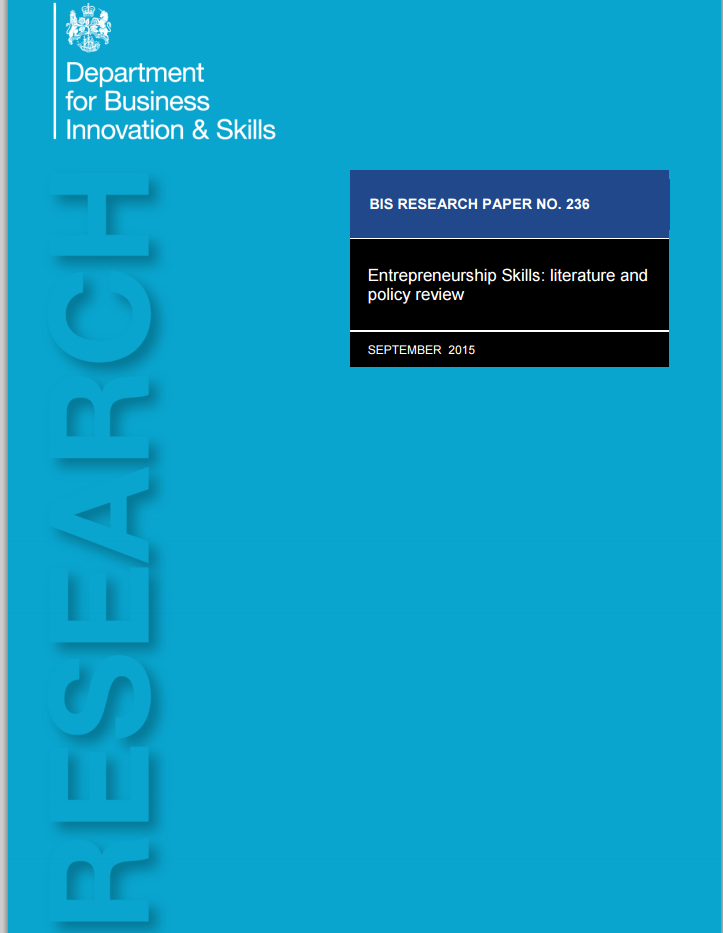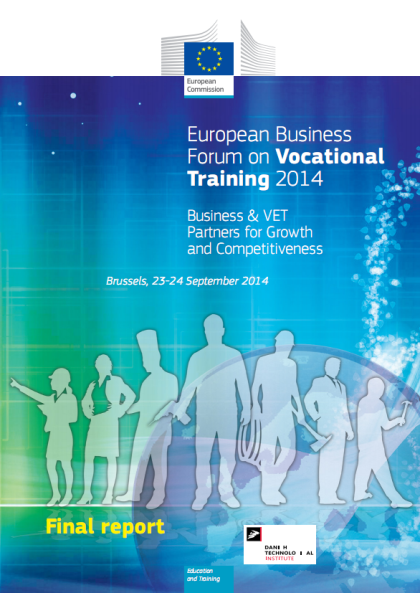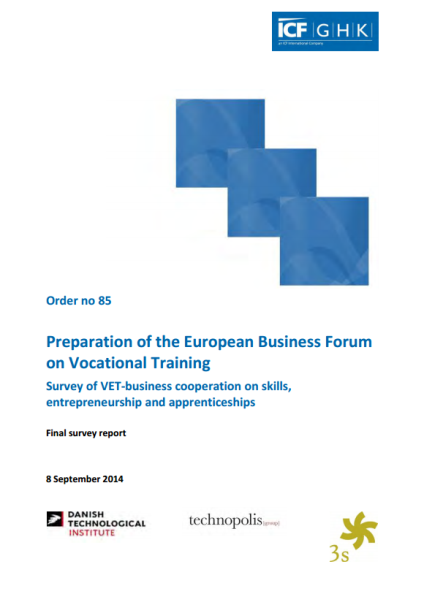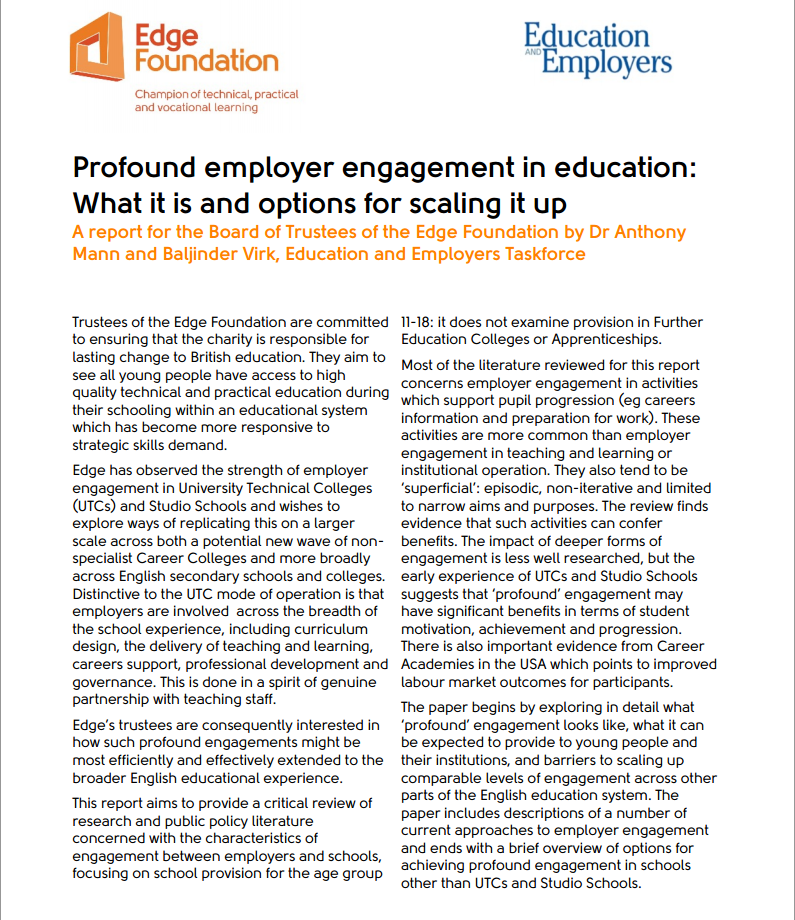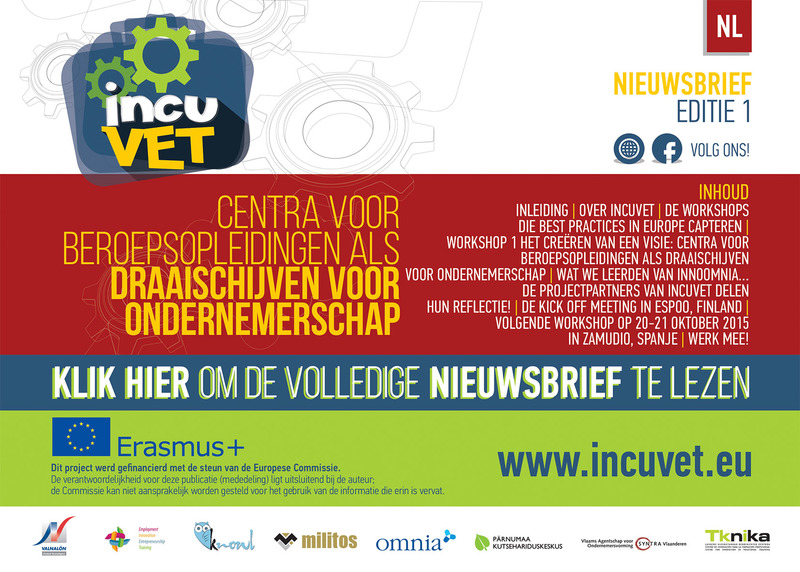Het door de EU gecofinancierde project IncuVET (2014-2016) beoogt de innovatieve rol van opleidingscentra voor beroepsonderwijs als lokale/regionale draaischijf voor ondernemerschap te ondersteunen en te promoten, en daarmee verder te gaan dan startersadvies dat al geboden wordt. De opleidingscentra kunnen een proces op gang brengen tussen diverse stakeholders waarbij lokale overheden, werkgevers, starters, lesgevers en cursisten samen bepalen hoe ondernemend onderwijs in het curriculum wordt geïntegreerd. Dit leerproces kan de scholen, de cursisten, de arbeidsmarkt en de gehele gemeenschap zinvol beïnvloeden.

MENTALITEITSWIJZIGING Het project biedt een ontmoetingsruimte voor alle geïntereseerde stakeholders (lesgevers, werkgevers, ondernemers, cursisten, lokale overheden, non-profit). Samen worden ontdekkingen gedaan en gediscussieerd over welke meer uitgebreide rol ondernemerschap zou moeten spelen in de samenleving en het onderwijs.
NIEUWE IDEEEN LANCEREN Het project vertrekt van het principe ’We Laten Geen Idee Liggen’’ met bijzondere aandacht voor creativiteit en duurzaamheid. Multidisciplinaire en sectoroverstijgende samenwerking en voeling met de echte wereld zijn cruciaal om de beste voorwaarden te creëren om nieuwe ideeën te doen ontstaan.
VALORISATIE Het project wil de voorwaarden omschrijven en bewaken om bepaalde van deze nieuwe ideeën vanuit ’Gedachtenland’ te laten evolueren naar leefbare ondernemingen, innovatieve produkten, revolutionaire diensten, nieuwe onderwijsmethodes, inclusieve sociale structuren en culturele evenementen die een toegevoegde waarde bieden en een bijdrage leveren aan de economische, sociale, culturele en ecologische ontwikkeling van de lokale (arbeids)markt en de gemeenschap waarin de opleidingscentra ingebed zijn.
Het IncuVET project zoekt naar een juist evenwicht en verbindingen tussen bovenstaande drie soorten interventies door bestaande initiatieven te verkennen en ervan te leren. Het project is gebaseerd op het uitwisselen van ideeën, ervaringen en praktijkervaring tussen de partners van het consortium in vier workshops gekoppeld aan studiebezoeken aan goede praktijkvoorbeelden in vier Europese landen (Finland, Spanje, Griekenland, België). Maar het project wil ook samenwerken met nieuwe Europese partners om hun kennis en praktijkervaring in te brengen in het kenniscentrum en het informatieplatform over ondernemend onderwijs in Europa en de rol van de opleidingscentra voor beroepsonderwijs daarin.
NEEM OOK DEEL!
IncuVET is op zoek naar input van, synergie en samenwerking met actoren betrokken bij VET en ondernemend onderwijs:
 INFO
INFO PARTNERS
PARTNERS